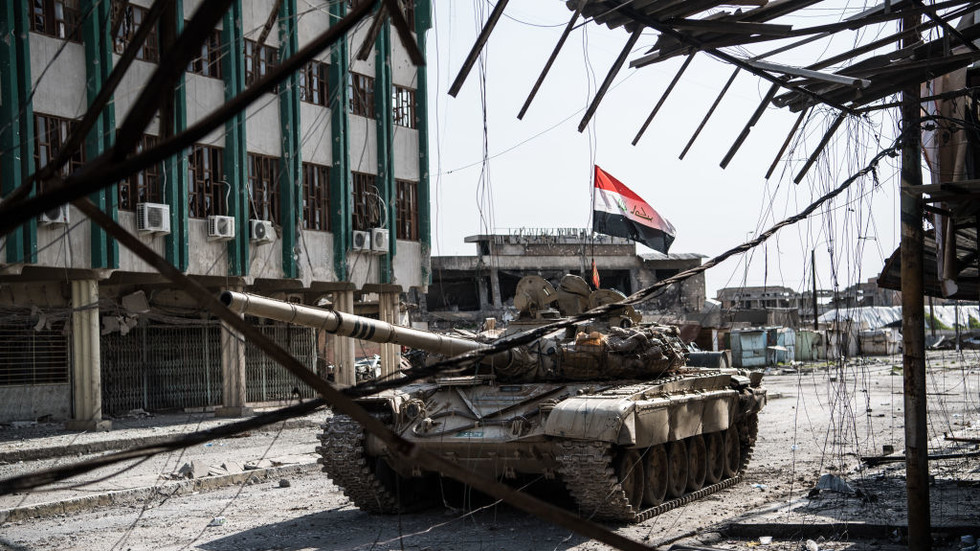Abu Abdul Qader, the top commander of the Islamic State (IS) in Iraq, has been confirmed killed by Iraqi Prime Minister Mohammed Shia al-Sudani, who also reported that eight other high-ranking IS leaders perished in the operation. This announcement comes after the US Central Command (CENTCOM) acknowledged the death of Jassim Al-Mazrouei, known as Abu Abdul Qader. In a statement on social media platform X, al-Sudani congratulated Iraqi citizens on this significant victory against the terrorist organization. He emphasized that the successful operation unfolded in the Hamrin Mountains, a known hideout for IS, and was executed by Iraq’s counter-terrorism and national security services with the oversight of the Joint Operations Command (JOC). The Prime Minister expressed determination in eradicating terrorism from Iraqi territory, asserting, “There is no place for terrorists in Iraq.”
Iraq’s military operations against IS have ramped up significantly in 2024, demonstrating a renewed commitment to national security. Al-Sudani highlighted that the circumstances of Iraq have transformed, stating confidently that, “Iraq in 2024 is not the same as Iraq in 2014.” This optimism reflects a shift in focus for the nation, moving from a state of conflict and chaos to a period of stability. The JOC noted that the operation leading to the elimination of the IS leaders gained support from technical assistance and intelligence sharing provided by Global Coalition forces, which underscores the ongoing partnership between Iraq and international allies in combatting terrorism.
In recent developments, a joint statement issued in September by Iraq and the United States indicated that the lengthy American-led international mission in Iraq is expected to conclude within a year. However, the Pentagon later clarified that this transition does not equate to a complete withdrawal of US forces. While the US military presence in Iraq has scaled down since its peak, the commitment to counter-terrorism remains evident in the ongoing military operations. The roots of the US military involvement can be traced back to the 2003 invasion of Iraq, which was initiated under the pretext of disarming Saddam Hussein’s regime of supposed weapons of mass destruction — claims that were later discredited. This invasion set off a chain of events that destabilized Iraq and created a breeding ground for extremist factions, particularly IS.
The resurgence of IS in both Iraq and Syria, particularly following the disastrous conditions that the 2003 invasion and subsequent turmoil unleashed, prompted a return of US troops to the region in 2014. The ensuing coalition efforts to root out IS garnered international support and funding, leading to various military operations which continued until the end of formal coalition actions in 2021. Despite the reduction of US forces on the ground to about 2,500 personnel, the remnants of IS have continued to pose a threat, necessitating the persistent military operations undertaken by Iraqi security forces.
The recent military success that culminated in the deaths of Abu Abdul Qader and other senior IS figures is a pivotal moment for Iraq in its ongoing fight against terrorism. The effectiveness of Iraq’s security apparatus, bolstered by intelligence and logistical support from allies, indicates a strengthened commitment to stability and sovereignty in the region. Al-Sudani’s assurances of transforming Iraq’s security landscape reflect broader aspirations for national governance free from the throes of insurgency and violence. As the Iraqi government navigates this transitional phase, its historical context involving foreign military intervention and local insurgent strife will remain significant in shaping the path forward.
The long-term success of Iraq’s counter-terrorism efforts, however, hinges on the government’s ability to foster socio-political stability, address grievances, and promote economic development. While military operations are vital, inclusive political dialogue, community engagement, and rehabilitation of former combatants will also be crucial in ensuring that the bedrock for extremist ideologies is dismantled. In conclusion, with emerging successes and a concerted focus on internal security, Iraq appears poised to further diminish the influence of IS, alongside navigating the complex legacy of foreign intervention that has characterized its recent past.

